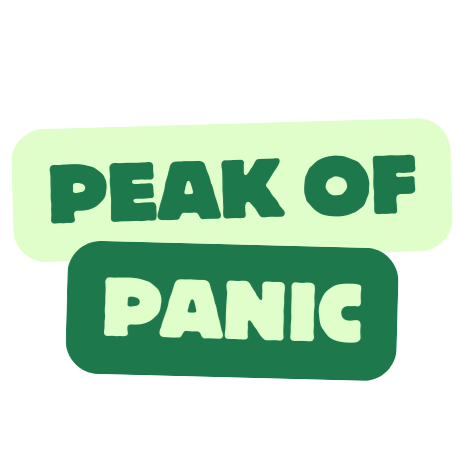Let’s talk about one of the most unsettling physical symptoms of anxiety: dizziness.
Maybe it hits you out of nowhere — that lightheaded, off-balance, “I might faint” feeling.
Or maybe it’s more constant — like the ground feels a little wobbly, or like you’re walking on a boat.
You might feel unsteady on your feet, unsure if your legs will hold you.
Some people say the room feels like it’s moving or vibrating, or they feel like they’re swaying even while standing still.
Sound familiar?
It’s the kind of sensation that makes you certain something’s seriously wrong. And the fear of what might happen — like passing out in public — can make everything spiral even faster.
What Anxiety Dizziness Feels Like
You might experience:
-
Sudden “spells” of dizziness that come and go
-
Persistent feelings of being off-balance or lightheaded
-
A sensation that your surroundings are moving or floating
-
A weird disconnect between your feet and the ground
-
Feeling like you're going to faint — even if you never actually do
These symptoms can show up in waves. Some days are manageable. Others feel like a total sensory overload. And the more you focus on it, the worse it seems to get.
The truth is, anxiety-related dizziness is incredibly common — and no, you’re not imagining it.
What Causes Anxiety Dizziness?
Before anything else, it’s always smart to rule out other medical conditions with your doctor. If multiple doctors confirm it’s anxiety-related, trust that. Your nervous system is doing the best it can under stress.
Now, let’s break down why this happens:
1. Overbreathing (Hyperventilation)
When you're anxious, you may breathe too quickly or too shallowly without realizing it. This messes with your CO2 and oxygen balance, causing symptoms like dizziness, tingling, or feeling faint.
2. Fight-or-Flight Mode
Anxiety triggers your body’s stress response — pumping out adrenaline and rerouting blood flow. Your heart rate goes up, your muscles tense, and your brain focuses on survival. That shift can easily make you feel dizzy or lightheaded.
3. Chronic Stress Overload
When you live in a state of high stress for too long, your nervous system becomes hyperactive. It’s like your internal balance system is glitching. Even on “calm” days, you might feel off-kilter.
4. Exhaustion
Let’s be real — anxiety is tiring. Mentally and physically. And when your body is worn down from constant tension, dizziness is a natural byproduct.
How to Stop Anxiety Dizziness
Here's what helps:
Breathe naturally
Slow your breathing. Focus on soft, steady inhales through the nose and longer exhales through the mouth. This helps stabilize oxygen/CO2 levels.
Calm the nervous system
Whatever works for you — grounding techniques, movement, cold water, Alpha-Stim, CBD — help your body exit fight-or-flight mode.
Prioritize recovery
Give your body what it needs: sleep, hydration, nourishment, and rest. Persistent stress takes time to heal from.
Reframe the fear
Remind yourself: I’ve felt this before. I’ve gotten through it before. The dizziness itself is not dangerous — it’s a signal your body is overwhelmed, not broken.
Reminder:
Anxiety dizziness is scary, yes — but it’s also reversible.
You are not alone.
You are not losing control.
You are not going to faint in public.
You are simply experiencing the body’s reaction to a mind under pressure.
Let yourself heal.
Be patient with your nervous system.
